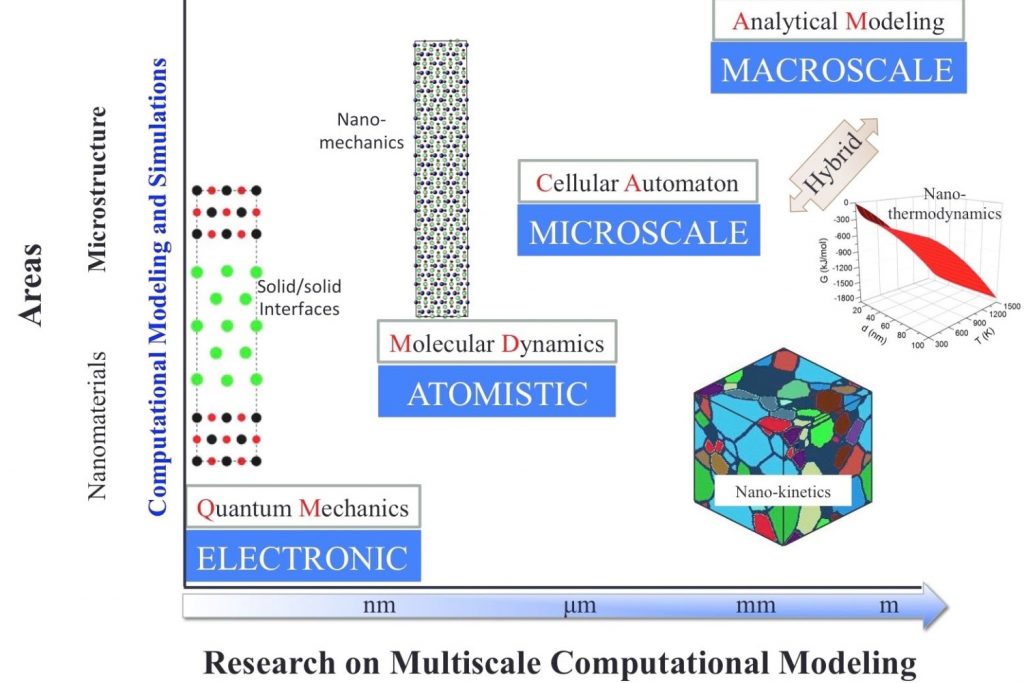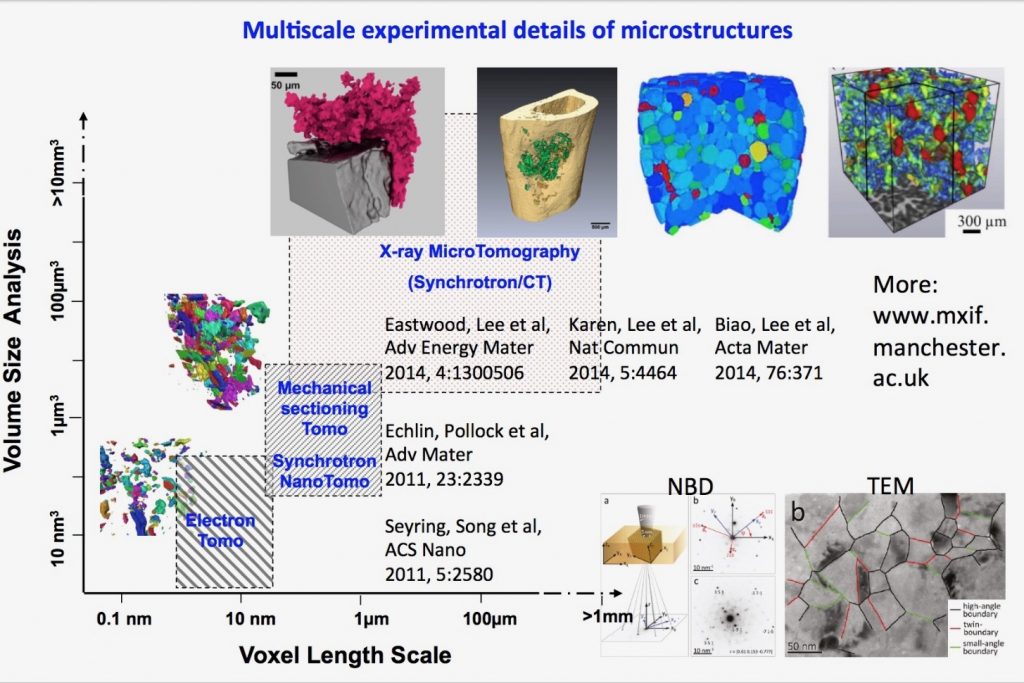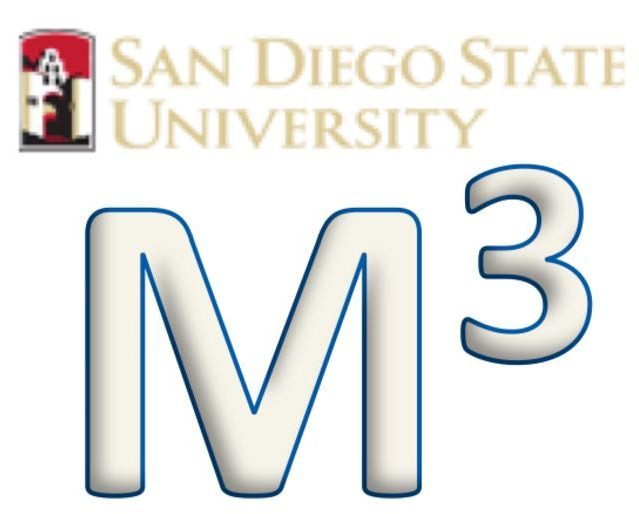Publications on Google Scholar and Research Gate.
Our research involves the use of state-of-the-art computational tools in the modeling and design of complex materials systems for structural and energy-related applications. In this context, multiscale methods including continuum theories, atomic-scale modeling, and first-principles-based simulations are applied in studies of the mechanical, thermodynamic, and dynamic properties of bulk phases, surfaces, and interfaces.
Multiscale Modeling of Materials

Multiscale materials modeling offers an integrated approach to modeling material behavior across a range of scales from the electronic, atomic, and microstructural up to the component level. As a result, it provides valuable new insights into complex structures and their properties, opening the way to develop new, multi-functional materials together with improved process and product designs. We employ highly efficient multiparadigm computational algorithms and tools capable of seamlessly bridging length and time scales to enable advanced design, characterization, and prediction of material properties and processes and their application into solving currently “impossible” problems.
Microstructure Characterization of Materials

Characterization of microstructural features plays a key-role in Materials Engineering and Materials Science. It serves as key evidence of microstructural modeling at multiple length scales. A myriad of advanced techniques is used at the Department of Mechanical Engineering at the San Diego State University, including X-ray diffraction, scanning electron microscopy, transmission electron microscopy, and atomic force microscopy. We use experimental characterization with the coupling of multiscale modeling and simulations to explore the processing-structure-property relationships in structural metals and materials at the nanoscale.
